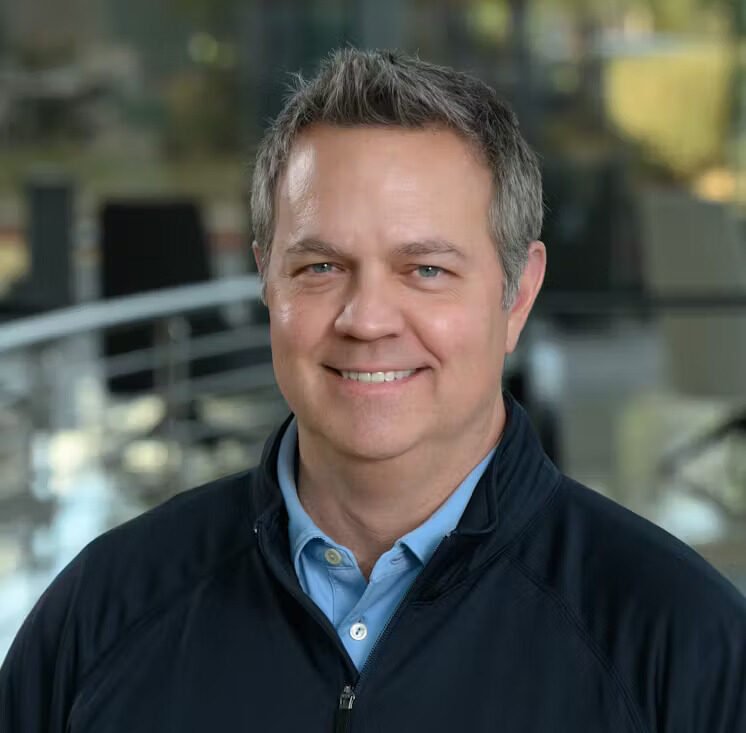Several years ago, I interviewed Peter Gillett, founder and CEO of Zuant, in an interview originally published in Thrive Global. Here is an excerpt from our conversation:
Adam: How did you get here?
Peter: Well, it all started with a company called Marketpoint, which specialized in database marketing before the days of the PC, so very early on. As it happened, we tended to get a lot of US clients for the service, particularly those who wanted a pan-European marketing service in multiple languages.
That developed over the years for even larger requirements and triggered the development of an international network of call centers around the world, which now totals 20 locations and approximately 10,000 seats. This allows us to compete with the big boys in the industry while delivering a committed and personal service within each country where the client operates.
So, one of our tasks was to handle the response channels for sales inquiries through the call centers from websites and traditional advertising media. One of these channels was from exhibitions where clients wanted us to capture paper-based leads from tradeshows, and then distribute them to direct sales teams or their dealers.
By then, we had taken an early lead in the web-based database technology area, so it didn’t take us long to develop a touchscreen laptop system for clients to replace their printed tradeshow forms with something far more sophisticated.
The arrival of the iPad in 2010 then pushed us across into the Apple world. Demand for this particular application led to creating a separate system, High Performance Software, to market the Zuant app for sales and marketing applications.
Adam: What sale are you proudest of? Walk through how you made it happen and its significance.
Peter: I’m showing my age here, but you always remember your first big sale, and in this case, it was to the Caterpillar company. Our creative form of direct marketing when we started the business was to send out Telex shots to test how quickly big companies could respond to inquiries.
Our 30-year relationship with this client started when I received a telex back within a couple of hours to say meet me at Dorlands Advertising at 4 pm the following Thursday in London, and that’s how it all got started!
Adam: What are your best tips on selling within your industry?
Peter: Well, although we position Zuant for both tradeshow and day-to-day sales use, it is the tradeshow application that gives salespeople the first taste of using the product. This, in turn, allows us to follow through with the wider day-to-day sales application.
Our initial target users are event managers, and it’s refreshing that we can catch them in their own environment during the first couple of days at a show before they jet off – This then allows us to follow up at the right time when we know they’re going to be back at home base between shows.
Adam: What sets your approach apart from others in your industry?
Peter: For one thing, we actually continue to ask this question at the end of each of our presentations so that we can get a feel for our difference. We pride ourselves on our customer service and therefore are in a great position to share unprompted feedback from a variety of clients, which is always well received.
And, overall, we find that our more restrained, professional approach is a great counterpoint and ‘positioner’ away from our more aggressive competitors.
Adam: What are your three best tips on selling?
Peter: 1. Blog – in this modern, digital world, the creation of interesting content based on your observations in your particular industry, can of course be the basis for wider PR use. But irrespective of that, it is really useful and effective to share your blog with your sales prospects in an e-newsletter format. Over time it creates an ongoing advertising effect with your direct target audience and creates a knowledgeable brand impression of you as a thought leader in your industry. And of course, it puts you firmly on the shortlist when someone is in the ‘buying cycle’.
2. Not being a pain in the backside – really pretty damn obvious, but we’re all on the receiving end of salespeople who you’ve politely told to leave it alone and they constantly keep the pressure on – a massive turn-off even if what they were offering is potentially of interest.
3. Timing – having a team in place who work with you to identify when someone is seriously in the market, and then running with it without the aforesaid pressure, is priceless.
Adam: Have you found that different types of prospects are responsive to different types of styles, and if so, do you adapt your style to the customer you are selling to?
Peter: Yes for sure, there has been such a rapid change from the old days of face-to-face presentations and business lunches to quick-fire web meetings and conference calls, that it is really important to feel the different styles required – the ‘chatty hi-action need lots of follow-up’ types, as opposed to the silent, professional listeners who need a slower, more detailed and professional follow-up. Both though are just as likely to buy.
Adam: On a scale of 1-10, how important are ethics to succeeding in sales?
Peter: 10. Simply because people buy from people they trust, and anything less than the highest standards will always work against you, certainly beyond just the short term. A good case in point is a company that took the opportunity of registering all our trademarks that we’d been using for over a decade, and then suing us for infringement! I’m delighted to report that both the company and people involved are not now in business…
Adam: In your experience, what are the key pitfalls to succeeding in sales and how can you overcome them?
Peter: A natural habit of salespeople due to tenacity being a strong trait of good people is to hang on to the bitter end! In other words, it is always so easy to fall into the trap of spending too long on people that aren’t going to buy, even though you know that they should… A far wiser approach is to stay in touch, but to pop these leads back in the river and leave them to return and bite at a later time. In other words, nurture them until they are ready to buy.
Adam: What is the single biggest sales mistake you have ever made and what did you learn from it?
Peter: For a long time, we used to relish the opportunity to take part in the more formal RFPs that started to come across our desks from large international companies. We soon realized that these ended up taking a lot of time with a whole range of totally irrelevant questions as a box-ticking exercise. We noticed that we were always being congratulated for making the shortlist and often finishing a close second – not where we needed to be competitively speaking!
Adam: What do you believe is the hardest step in the sales process and how can it best be navigated?
Peter: Without a doubt, it’s what we call ‘the initial standout’. When you’re on a web meeting for the first time, the real challenge is to get across what makes you different, and it’s always frustrating if you get passed over when you know you should still be in the hunt. Making those first presentations really count therefore is absolutely crucial and paramount.
Adam: What are your best tips for improving your close rate?
Peter: For sure a big ‘Top of Funnel’ so that you have a regular flow of leads permanently bubbling away like percolated coffee!
Adam: What is your best advice around making the ask?
Peter: Just ask; people prefer to give frank answers rather than to beat around the bush, which doesn’t do either side any good.
Adam: What key words or phrases you have found have helped or hurt your chances of success?
Peter: Goodness, that’s an interesting one. I think explaining that you’re a quality, high-tech company with good values for the UI and UX throughout the organization means that they won’t be bombarded by sales pressure. High pressure is a big turn-off for most people.
Adam: What is your best advice on how to best manage and stay on top of leads?
Peter: Whatever the size of your operation, the key aspect that I mentioned earlier is having the team around you to handle sales inquiries quickly right from the moment they appear whether it’s inbound calls or the good old web. Make sure that your top-of-funnel leads are being worked extremely well to create a good impression so that you can focus on those farther in the funnel who are in serious buy mode.
A good rule of thumb is to have one inbound and one outbound person for each of your executive sales team – those will make unusual numbers, but processing a good volume of leads leaving ‘the closer’ with just quality opportunities will quickly show good ROI…
Adam: What is one thing everyone can do tomorrow to become better at selling?
Peter: Make sure you’re powered by a top-class database of leads in your CRM – you’re dead without it!
Adam: What is the single best piece of sales advice you have ever received?
Peter: Learn quickly from bitter experience!
Adam Mendler is an entrepreneur, writer, speaker, educator, and nationally recognized authority on leadership. Adam is the creator and host of the business and leadership podcast Thirty Minute Mentors, where he goes one-on-one with America’s most successful people – Fortune 500 CEOs, founders of household name companies, Hall of Fame and Olympic gold medal-winning athletes, political and military leaders – for intimate half-hour conversations each week. A top leadership speaker, Adam draws upon his insights building and leading businesses and interviewing hundreds of America’s top leaders as a top keynote speaker to businesses, universities, and non-profit organizations. Adam has written extensively on leadership and related topics, having authored over 70 articles published in major media outlets including Forbes, Inc. and HuffPost, and has conducted more than 500 one on one interviews with America’s top leaders through his collective media projects. Adam teaches graduate-level courses on leadership at UCLA and is an advisor to numerous companies and leaders. A Los Angeles native, Adam is a lifelong Angels fan and an avid backgammon player.
Follow Adam on Instagram and Twitter at @adammendler and on LinkedIn and listen and subscribe to Thirty Minute Mentors on your favorite podcasting app.








